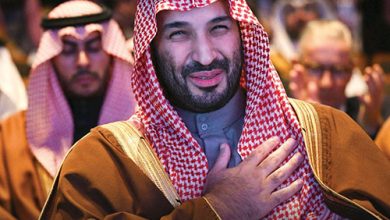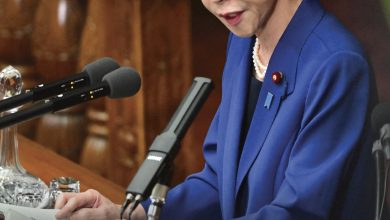GERMANY TODAY
DEUTSCHLAND IN THE DUMPS?
Monita Pesumal provides a comprehensive update on the future outlook of Europe’s largest economy
A recession is generally defined as two consecutive quarters of negative growth. While the German economy contracted by 0.1 percent in the second quarter of this year, analysts suggest that the third will result in a repeat performance of declining output, placing the Federal Republic on the brink of an economic downturn.
Germany’s annual growth rate slowed to 0.4 percent in the second quarter from 0.9 percent in the first, Reuters reported in August. Later the same month, Deutsche Bundesbank – the German central bank – warned that the nation’s economy could enter a recession in the third quarter as a result of a “sharp contraction” in industrial production.
This is ironic because Germany is often dubbed ‘Europe’s richest country.’ But the trade war between China and America, never-ending Brexit shock waves and declining global demand are to blame for Germany’s slowdown in the manufacturing sector.
The escalating US-China trade war is relevant to Germany’s export reliant economy with its Federal Statistical Office reporting that China is Germany’s most important trading partner, followed by the Netherlands and US.
According to the UK’s Financial Times, exports account for 47 percent of Germany’s GDP. The country exported goods worth EUR 106.1 billion and its imports amounted to 89.3 billion euros in June. But based on provisional data, the Federal Statistical Office reports that German exports and imports declined in June by eight and 4.4 percent year on year respectively.
Germany’s economy is dominated by manufacturing sectors including motor, chemicals, metals such as iron and steel, electrical equipment, coal, ships, machine tools, high precision equipment, optics, pharmaceuticals, textiles and plastic goods.
Its automakers Volkswagen, Daimler and BMW together generate revenues in excess of US$ 600,000 million annually, and employ over a million people globally. However, this industry – which is vital to the nation’s economic success – has been affected by scandals and conflicts since the 2015 diesel emissions fiasco first rocked Volkswagen, which is one of the best-known global brands.
Environmental activists have accused the industry of failing to do enough to help avert a climate crisis. Consequentially, Germany’s car production has hit its lowest ebb since 2010, according to Bloomberg, which reports that carmakers as well as parts suppliers such as Robert Bosch and Continental support everything from machine makers to advertising agencies and cleaning services.
In other major developments, a recent study reveals that a growing number of Germans believe that migrants drive wages down and are a burden on the social welfare system.
On 4 September 2015, thousands of asylum seekers stranded in Hungary began walking to Germany through Austria. Germany decided to let them in and a further 900,000 followed entry under Chancellor Angela Merkel’s open-door policy. Many of them were fleeing conflict and extreme poverty in war-torn countries in the Middle East, Asia and Africa.
Since 2015, Germany has welcomed more refugees than any other European nation. Refugees from Afghanistan, Iraq, Somalia, Sudan and Syria flee to Germany, as they view it as a safe haven away from war and persecution while the rest – mostly from Algeria and Morocco – cross into Germany in search of better economic opportunities. At the end of last year, approximately 10.9 million foreigners were thought to be living in Germany.
But the influx of immigrants is now being regarded as hope for the economy, which has stagnated for years due to a shortage of skilled workers. Statistics reveal that a third of all migrants find employment in three years.
A new law on the immigration of skilled workers comes into effect next year, and aims to attract qualified foreigners to Germany to avert shortages in the labour market. The new regulations would make it easier to work in Germany with a foreign qualification. Among the other changes, it also lifts the requirement for employers to prove that no German or other European worker is suitable to fill a vacancy – this puts all applicants on an equal footing.
On a visit to China in September, Merkel signed 11 deals. She plans to explore emerging fields such as autonomous driving, new energy vehicles, intelligent manufacturing, AI, digitalisation and 5G with Beijing. Merkel has also called for a peaceful resolution of the protests in Hong Kong.
Her recent visit to China was the 12th since she assumed office but it may have been her last as German chancellor. Merkel’s tenure ends in 2021, after which she plans to leave politics for good. During Germany’s presidency of the European Council in the second half of 2020, the chancellor plans to host an EU-China summit in Germany.
However, despite a changing climate for political parties, Merkel commands a majority approval rating of 56 percent, making her the most popular politician in the country. Federal Minister for Foreign Affairs Heiko Maas of the Social Democratic Party of Germany comes in second with 43 percent.







